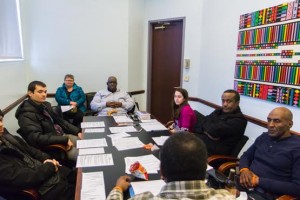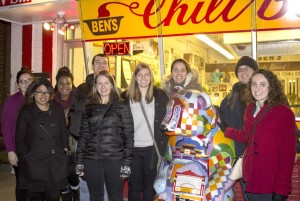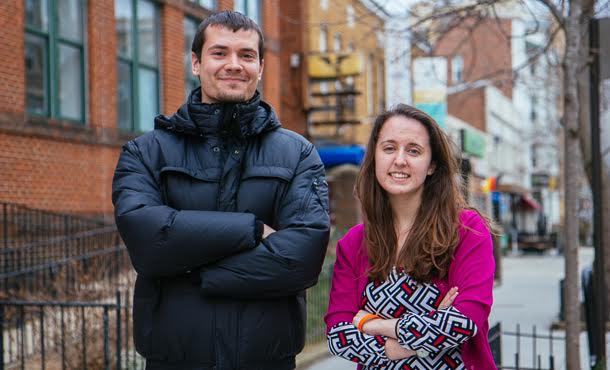Nathan McKnight recognized a quality of reciprocity in his spring semester internship. The people who come through the “freedom circles” hosted by the organization Reunion, he says, “are improving me, at the same time that I’m doing my best to improve them.”
McKnight, a recent graduate of the peacebuilding and development program at Eastern Mennonite University, interned with Reunion while on a cross-cultural semester with the Washington Community Scholars’ Center.
Reunion, a group responding to “the injustices of mass incarceration,” helps to integrate formerly incarcerated into society through a network of racially and socio-economically diverse small groups— Freedom Circles— that meet in communities of various faith traditions throughout Washington D.C.
McKnight, other staff and regular attendees took turns leading these circles, introducing discussion topics and facilitating conversation.

“Encouragement of a new community is very, very important,” says McKnight. “That really pushes people who come through our Freedom Circles in a better direction than they have followed previously.”
EMU grad returns to work after internship
The confidential meetings “help people who are coming home from incarceration to have a support network,” says Amy Feeser, a 2015 EMU graduate who works with Reunion as a program and administrative associate.
Feeser, who interned with the organization in the fall of 2015, was the first intern with a social work background. She began looking at the needs and resources of program attendees, in addition to “the faith aspect” of rehabilitation.
Returning to the organization after graduation, Feeser now helps facilitate the circles, coordinates volunteers for prison visits, and connects attendees with congregations and other safe spaces. She also fundraises and helps to write grants.
Feeser views Reunion as “a beacon of hope … I’m surrounded by people who share their brokenness and their stories openly.”
While she at times despairs at the unfairness of the justice system, Feeser is bolstered by the potential of the circles to promote honest, vulnerable connection that springs from brokenness.
Classes, work experience help understanding

McKnight’s interest in the prison system began in a restorative justice class taught by Professor Barry Hart, with EMU’s Center for Justice and Peacebuilding. The class traveled to the Graterford maximum security prison in Pennsylvania, where they participated in eight-hour nonviolence sessions with inmates who had been merited with good behavior.
“I understood a lot more about the problems with our justice system, as well as getting to know the inmates themselves better, and understanding their humanity,” says McKnight. “I began to delve deeper into some of the questions that had been raised by being there.”
One of those questions was to challenge “the myth that people coming out of prison are people who have ‘served their time.’ I have been learning from my experience here that people who have a criminal record are incarcerated for life, in a way,” he says.
A felony conviction makes certain jobs, housing, and relationship opportunities vanish. People with criminal records “are essentially put into a second-class citizenship, where they don’t have freedoms like voting,” McKnight explains.
Working with people who face such difficulties was emotionally challenging work – what McKnight saw as both the greatest struggle and reward of his internship. Despite the emotional toll, seeing positive progress in the lives of Freedom Circle participants “makes me look at the world in new ways,” he said.
Washington Community Scholars’ Center (and its former program, Washington Study-Service Year) celebrates 40 years of cross-cultural learning in Washington D.C. Saturday, Oct. 22, 2016. Check the website for more details later this summer and contact lauren.jefferson@emu.edu if you’d like to be added to a mailing list for more information.

Good work Nathan! You’re a smart lad with a bright future!